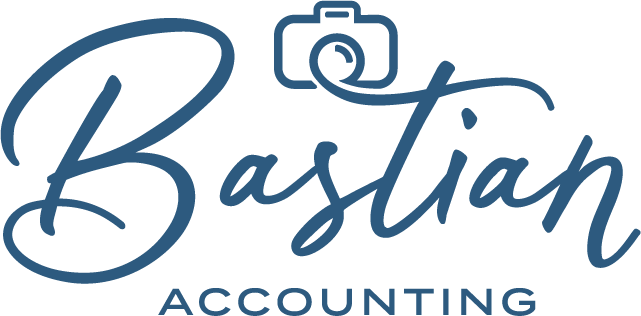The 5 BIGGEST Tax Oversights
I talk to photographers every day, this is a collection five most common areas I help them understand.
#1 Required Taxes
Many photographers often do not realize the many types of taxes that apply to their business such as Federal Income Tax, State Income Tax (varies by state), Sales Tax (varies by state), & Payroll Taxes. Not filing the appropriate taxes can rack up some pretty hefty penalties and interest. Not paying sales tax can shut your business down. This is nothing to mess with.
#2 Handling Deductions Properly
There are limitation on certain deductions for example only 50% of meals and entertainment can be deducted. Gifts can only be deducted up to 25.00 per person per tax year. Any gifts for employees that can readily be turned into cash such as a gift certificate or gift card has to be reported on their W2. Vehicle expenses can only be deducted if you are depreciating a vehicle (you should only depreciate a vehicle that is used for MOSTLY business) otherwise you should only deduct mileage. You need to track mileage for any BUSINESS vehicle you use for both personal and business. You can also deduct home office expenses if you work from home. This allows you to deduct a % of your mortgage Interest or rent along with utilities and more.
#3 Classifying Workers Properly
The IRS has very specific rules around what defines an employee versus a subcontractor. There is a very different tax situation for employees and independent contractors. If misclassification is found back wages, payroll taxes, benefits and penalties will add up to a costly legal mistake.
#4 Business Entity's Affect on Taxes
Your specific business entity affects your tax returns. Sole Proprietor, LLC, Partnership & S-Corporations are all pass-through entities. This means that the profit of the business passes through to your personal tax return. However, a partnership and s-corporation have completely separate returns that are prepared separately, then passed through. Whereas Sole Proprietor, LLC (unless filing taxes as an S-corporation, Yes that is a thing) have a schedule C that attaches to the personal return.
#5 Required Estimated Tax Payments
If your tax liability is over $1000.00 for the year you are required to pay quarterly estimated tax payments to avoid penalties. This means calculating your net income each quarter and then calculated the self-employment taxes. You may also need to make state estimated tax payments. If these payments are not made you will owe the full amount at tax time with penalties for not paying timely each quarter.
Need More?
Click here to join my free Facebook Community Financially Focused Photographers
I go live in this community every week answering all your tax, bookkeeping, and tax questions!
Be sure to follow me on Instagram, Facebook, YouTube, and Pinterest.
I hope this helps you consider what you need for your own bookkeeping and accounting needs. If you would like to break up with your bookkeeping, CLICK HERE.

